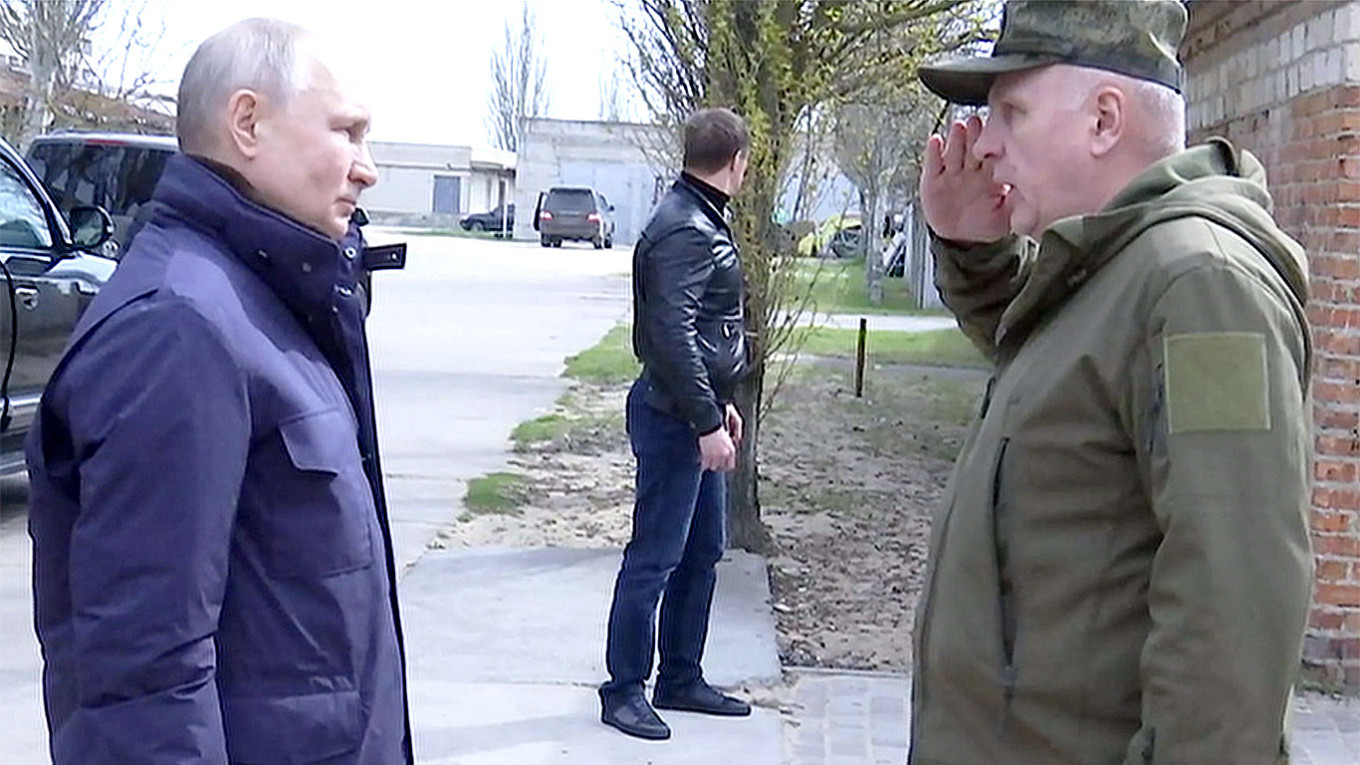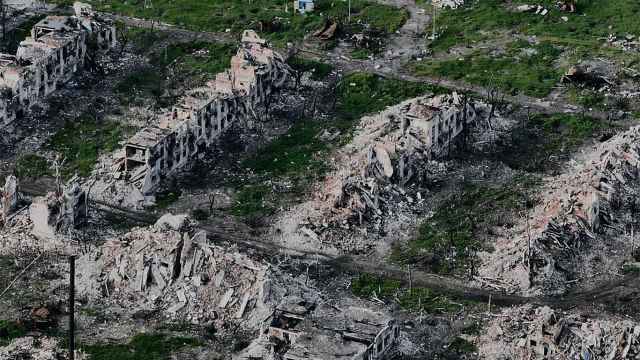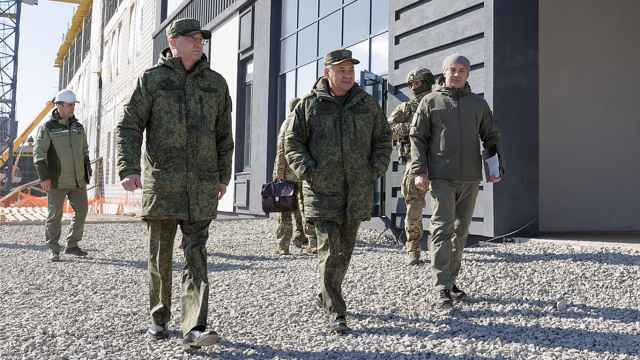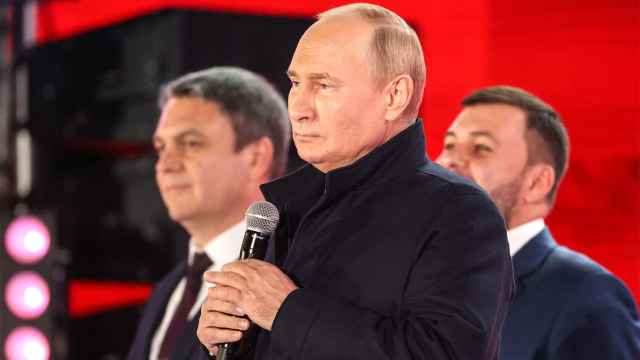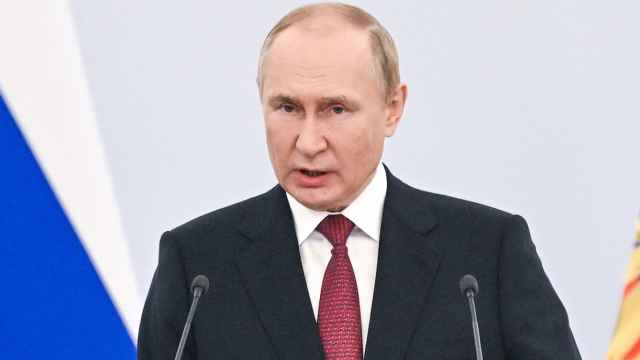President Vladimir Putin's first trip to meet his generals in Russian-occupied Ukraine publicized by the Kremlin earlier this week was an attempt to show he is in control of the military situation and compete with Ukrainian President Volodymyr Zelensky, according to analysts.
This is only the second time Putin has publicly traveled to the areas of Ukraine seized by Russia in its full-scale invasion launched last year.
“They need to show that the Russian president is not inferior to the Ukrainian president,” Oleg Ignatov, a senior analyst at International Crisis Group, told The Moscow Times.
Putin’s visit also comes as Russia’s spring offensive in eastern Ukraine, which has focused on the contested city of Bakhmut, appears to be petering out with few territorial gains — and as Russian forces brace for what is expected to be a major Ukrainian counter-offensive.
In footage of the trip released Tuesday by the Kremlin, the Russian leader was shown meeting generals in military facilities in Ukraine's southern Kherson region and the eastern Luhansk region.
While the Kremlin claimed Putin made the trip on Monday, independent Russian journalists were quick to dispute the official version.
In a video of the visit, Putin is seen making a reference to upcoming Orthodox Easter celebrations — but the Russian Orthodox Church marked Easter on Sunday.
The Kremlin took down the video shortly after it was uploaded and published a new one in which Putin’s mention of the upcoming Easter celebrations was absent, independent Russian media outlet Agentstvo reported.
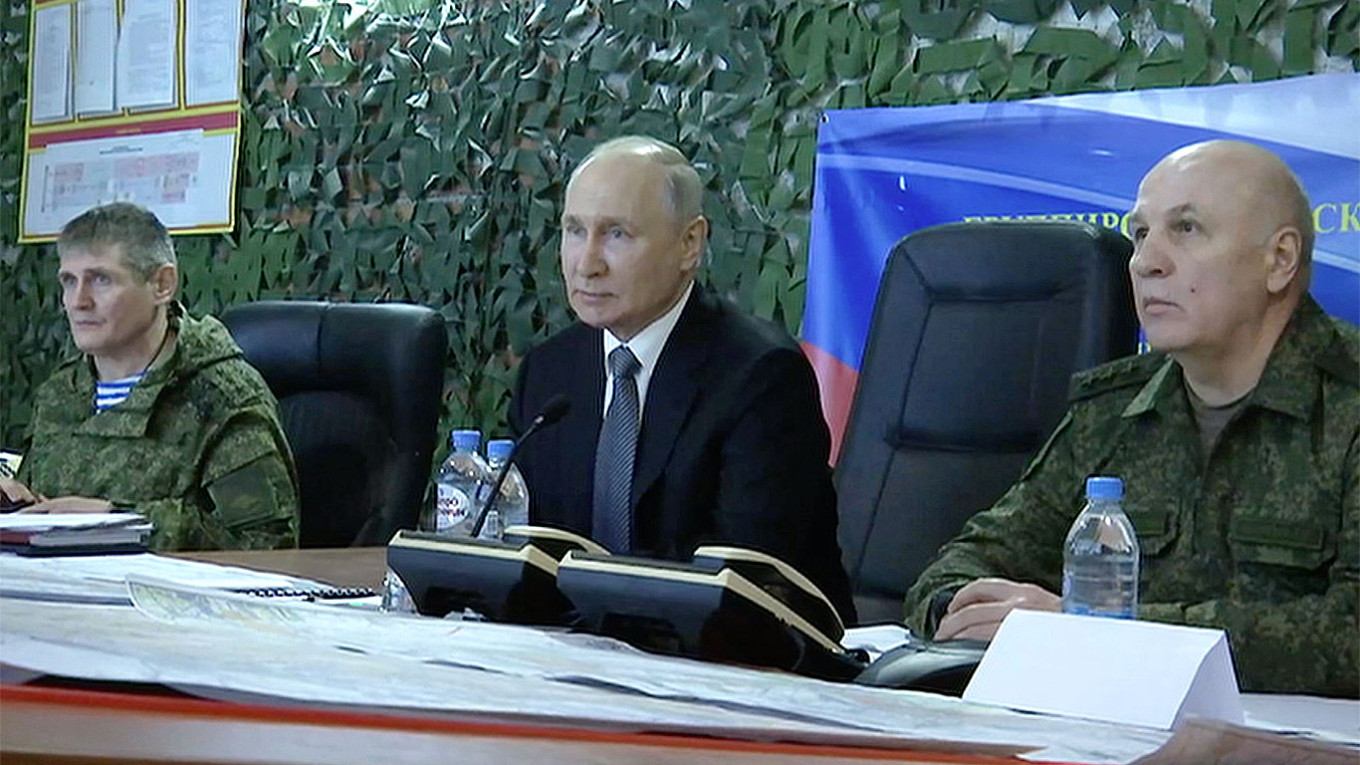
While this suggests the trip likely took place last week, it is unclear exactly when exactly it might have occurred.
A delay in publicizing the visit was likely the result of security concerns, a source close to the Kremlin who requested anonymity told The Moscow Times, citing the common practice whereby events involving Putin being pre-recorded and then released days or weeks later.
In addition to presenting the trip as a recent event, the Kremlin also went to great lengths in an attempt to show that Putin was visiting an active war zone.
In the footage, he is seen arriving in a military helicopter and talking with senior officers inside darkened buildings draped in camouflage netting.
However, the BBC Russian Service reported Tuesday that the closest the Russian president came to the frontlines was about 150 kilometers, citing geolocation data that suggested the Kherson meeting was held at a military base in the town of Henichesk.
According to analyst Ignatov, Putin’s decision to take even such minimal risks was likely on the advice of advisers who want him to be seen as more active in military affairs and events taking place on the battlefield.
The president’s deputy chiefs of staff, Alexei Gromov and Sergei Kiriyenko “advocate for the Russian leader's personal involvement in the military invasion,” said Ignatov.
In particular, according to Ignatov, Putin’s advisers want him to compete with Zelensky, who regularly visits the frontlines to meet with troops
"Putin himself has always been reluctant to do this, but Gromov and Kiriyenko recommend it,” he said.
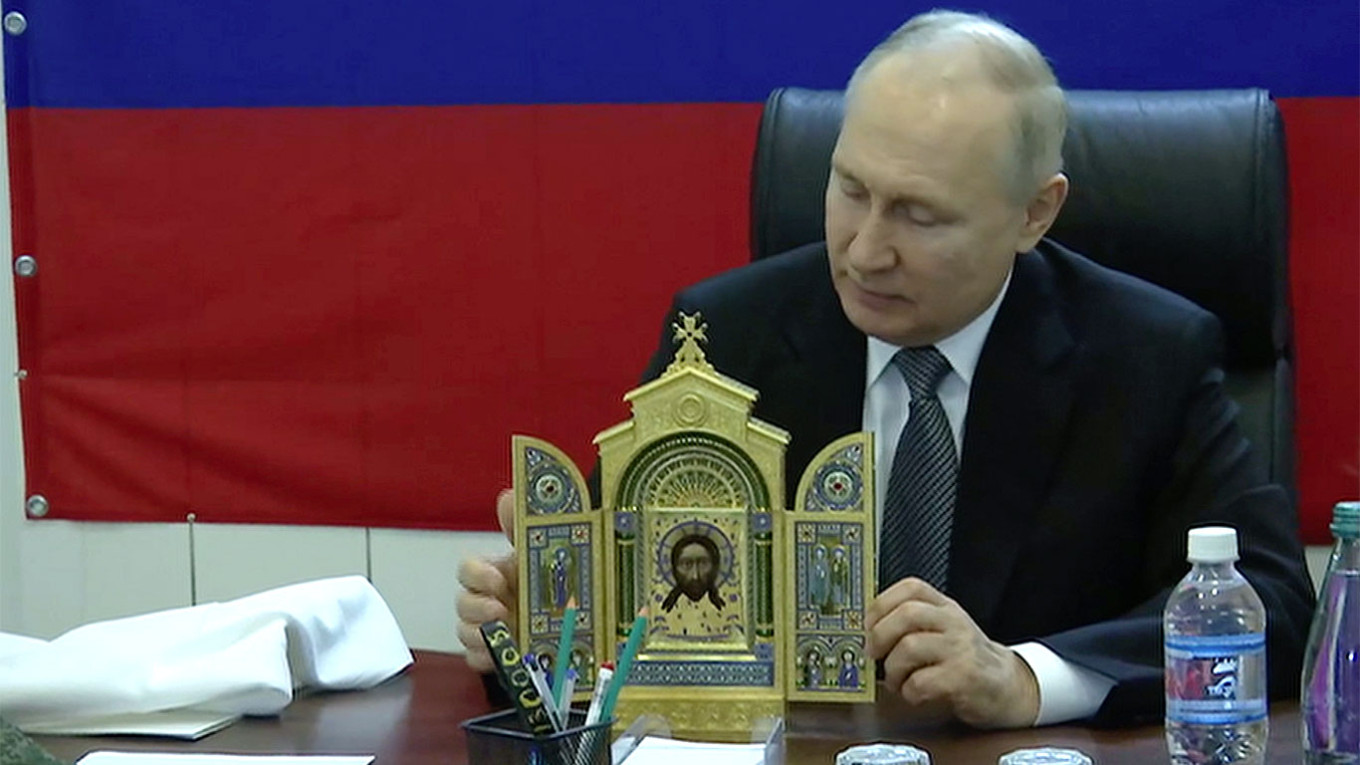
Other sources suggested Putin’s visit could be an attempt to gain a better understanding of the situation at the front as Russian forces prepare for a Ukrainian offensive.
Perhaps surprisingly, those formally in charge of the invasion — Defense Minister Sergei Shoigu, and the chief of the General Staff Valery Gerasimov — were not present.
While Putin’s spokesperson told journalists their absence was a security precaution, there was also speculation Putin wanted to speak to officers who would not normally report to him, but to Shoigu or Gerasimov.
The trip reflects "the Russian president's wish to see what's going on with his own eyes and to get a feel for the mood,” a source close to the Defense Ministry, who requested anonymity, told The Moscow Times.
“That includes talking with people who do not [normally] have direct access to Putin.”
This was also stressed in coverage by state-run Russian media outlets, with a reporter on Channel One’s evening news broadcast noting that “it’s important for the commander-in-chief to get information on the ground.”
In footage, Putin was seen talking with officers including Mikhail Teplinsky, the commander of Russia’s paratroopers, and Alexander Lapin, who was in charge of the Russian invasion of Ukraine until his appointment to a different role late last year.
Putin first visited Ukrainian territory seized by Russia in its full-scale invasion last month when he flew by helicopter to the port city of Mariupol.
The officers with whom Putin was pictured in the footage from Luhansk and Kherson regions suggests that the president retains trust in the Armed Forces despite the relative failure of a recent Russian offensive and intense criticism from prominent figures like Yevgeny Prigozhin, leader of mercenary outfit Wagner, and Ramzan Kadyrov, the head of the North Caucasus republic of Chechnya.
“The ‘military faction’ retains its strength and political influence,” military expert David Gendelman told The Moscow Times.
"Despite Kadyrov's and Prigozhin's ‘hit-and-runs’ against specific generals and the general friction between them and the Russian Armed Forces.”
A Message from The Moscow Times:
Dear readers,
We are facing unprecedented challenges. Russia's Prosecutor General's Office has designated The Moscow Times as an "undesirable" organization, criminalizing our work and putting our staff at risk of prosecution. This follows our earlier unjust labeling as a "foreign agent."
These actions are direct attempts to silence independent journalism in Russia. The authorities claim our work "discredits the decisions of the Russian leadership." We see things differently: we strive to provide accurate, unbiased reporting on Russia.
We, the journalists of The Moscow Times, refuse to be silenced. But to continue our work, we need your help.
Your support, no matter how small, makes a world of difference. If you can, please support us monthly starting from just $2. It's quick to set up, and every contribution makes a significant impact.
By supporting The Moscow Times, you're defending open, independent journalism in the face of repression. Thank you for standing with us.
Remind me later.



